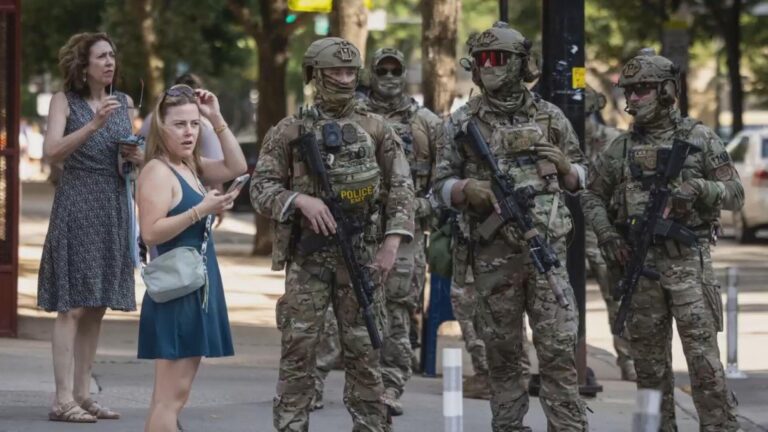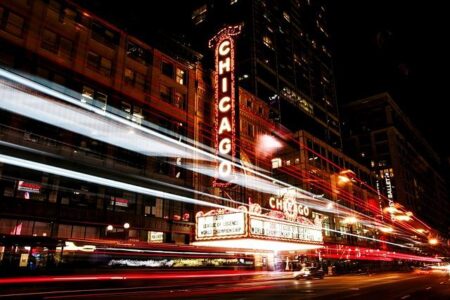Governor Pritzker Rejects Federal Troop Deployment to Chicago as Constitutionally Inadmissible
Illinois Governor J.B. Pritzker has firmly opposed recent claims suggesting that former President Donald Trump considered sending federal military forces to Chicago. Pritzker argued that such a move would flagrantly violate constitutional boundaries and democratic norms. He stressed that deploying armed forces within a city governed by elected officials threatens the foundational principles of governance and endangers civil freedoms.
- The governor described the rumored plan as both “illegal” and contrary to American values.
- He highlighted the critical role of local authorities in overseeing law enforcement and ensuring public safety.
- Pritzker urged federal leaders to honor constitutional limits and refrain from militarizing urban communities.
| Issue | Governor Pritzker’s Viewpoint |
|---|---|
| Use of Federal Military | Deemed unconstitutional and unacceptable |
| Local Governance Authority | Essential for democratic legitimacy |
| Preservation of Constitutional Order | Non-negotiable priority |
Constitutional Experts Analyze Legal Risks of Military Intervention in Cities
Legal scholars have voiced significant apprehension regarding the prospect of deploying federal troops to Chicago, citing potential breaches of constitutional safeguards and established legal frameworks. Experts point to the Posse Comitatus Act, a federal statute that restricts the use of the military for domestic law enforcement without explicit congressional consent. They warn that such an action could infringe on civil liberties and establish a perilous precedent for the militarization of American cities.
- Posse Comitatus Act: Limits military involvement in civilian policing absent clear legislative approval.
- Federalism Issues: Possibly undermines the autonomy of state and local governments.
- Balancing Act: The challenge of maintaining public order while safeguarding constitutional freedoms.
| Legal Dimension | Possible Consequence |
|---|---|
| Constitutional Boundaries | Risk of unlawful military interference in civilian governance |
| Civil Liberties | Threats to rights such as free speech and peaceful assembly |
| Local Control | Diminished authority of state and municipal law enforcement |
Responses from Community Activists and Civil Rights Organizations
Community advocates throughout Chicago have voiced strong resistance to the speculation about military deployment in the city. Many activists argue that such a measure would represent an excessive use of power, risking the erosion of civil rights and deepening distrust between residents and law enforcement agencies. Numerous civil rights groups have publicly condemned the potential militarization of neighborhoods, warning that it could inflame tensions rather than address root causes of crime.
- The Chicago Justice Network raised alarms about increased racial profiling and the weakening of community policing initiatives.
- Representatives from the Urban Equity Coalition called for elected officials to focus on dialog and investment in community resources instead.
- The Great Lakes Civil Liberties Association highlighted the historical dangers of military involvement in domestic affairs and its threat to democratic governance.
| Institution | Stance | Main Concern |
|---|---|---|
| Chicago Justice Network | Opposes Military Deployment | Racial Profiling Risks |
| Urban Equity Coalition | Advocates for Dialogue | Community Investment |
| Great Lakes Civil Liberties Association | Condemns Proposal | Protection of Democratic Norms |
Government representatives have echoed these apprehensions, urging reconsideration of what many describe as an unlawful and unpatriotic strategy. This reaction reflects a broader national conversation about the military’s role in domestic law enforcement and the imperative to uphold constitutional rights amid civil unrest.
Guidelines for Preserving Democratic Values in Emergency Response
During crises, it is indeed crucial that government interventions remain transparent and accountable, ensuring that emergency powers do not encroach upon individual freedoms. Authorities should prioritize open interaction with the public, offering clear explanations for any unusual measures. This transparency fosters public trust and safeguards the democratic principle of civilian oversight, especially when considering military involvement within U.S. cities.
- Strict adherence to constitutional constraints on emergency powers
- Active involvement of legislative bodies to provide checks and balances
- Protection of fundamental rights such as freedom of speech and peaceful assembly
- Collaboration with local leaders to respect community autonomy and concerns
| Core Principle | Recommended Practice |
|---|---|
| Transparency | Consistent updates from official channels |
| Legal Accountability | Judicial oversight of emergency declarations |
| Community Involvement | Inclusion of local governments in decision-making |
| Human Rights Protection | Ensuring enforcement is free from discrimination |
Conclusion: The Future of Federal and Local Law Enforcement Collaboration
As discussions intensify over the federal government’s role in local policing, Governor Pritzker’s clear opposition highlights the constitutional and democratic stakes involved. This controversy underscores the persistent friction between state and federal authorities regarding the appropriate use of military force in American cities. With ongoing scrutiny from legal experts and policymakers alike, the outcome of this debate will have significant implications for governance, civil liberties, and the boundaries of executive authority in times of domestic unrest.





